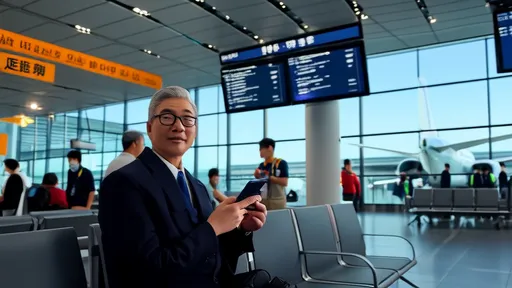Travel plans are often meticulously crafted with excitement and anticipation, yet even the most well-organized itineraries can be disrupted by unforeseen circumstances. Whether it's a sudden flight cancellation, a natural disaster, a personal emergency, or a global event that upends the travel industry, the ability to adapt quickly is an essential skill for any modern traveler. The art of adjusting your journey on the fly goes beyond mere inconvenience management; it transforms potential trip-ruining scenarios into opportunities for unexpected adventures and growth. This article delves into practical strategies and mindset shifts that can help you navigate travel disruptions with confidence and grace.
Before delving into reactive measures, it's worth emphasizing the power of proactive planning. While you can't predict every possible disruption, building flexibility into your itinerary from the outset can save considerable stress later. This includes opting for refundable accommodations whenever possible, purchasing comprehensive travel insurance that covers trip interruptions, and avoiding extremely tight connections that leave no room for delays. Savvy travelers often keep digital copies of important documents—passports, itineraries, insurance policies—readily accessible in cloud storage, and maintain a list of emergency contacts both on their person and shared with trusted individuals back home. These preliminary steps create a safety net that makes actual plan adjustments much smoother when necessary.
When disruption strikes, the initial moments are critical. Rather than panicking or immediately joining long customer service queues, take a deep breath and assess the situation calmly. Modern technology provides powerful tools for real-time information gathering: check airline apps for official updates before relying on airport displays, use flight tracking websites to understand the scope of delays, and monitor social media for crowd-sourced information about your specific situation. This information triage allows you to understand whether you're facing a minor delay or a major cancellation, enabling appropriate next steps. During this phase, avoid making impulsive decisions like immediately rebooking the most expensive alternative flight; instead, gather data to make informed choices.
Armed with a clear understanding of the situation, it's time to explore alternatives. For transportation issues, look beyond obvious solutions—if your flight is canceled, consider nearby airports, alternative carriers, or even ground transportation options like trains or rental cars. Accommodation disruptions might lead you to discover charming boutique hotels instead of international chains, often at better rates. The digital age has revolutionized this process: use comparison websites and apps to quickly evaluate options, but don't underestimate the power of a direct phone call to providers who might have access to inventory or options not visible through online channels. Travel professionals can be invaluable here; even if you booked independently, a quick call to a travel agent's emergency line might yield creative solutions.
Financial considerations inevitably arise during plan changes. Understanding your rights and coverage is crucial here. Many travelers don't realize that airlines often owe compensation or rebooking options regardless of insurance coverage, particularly for cancellations within their control. Keep all receipts for unexpected expenses—meals during long delays, emergency accommodations, transportation—as these may be reimbursable through insurance or carrier policies. When making new arrangements, be aware that prices often spike immediately following widespread disruptions; if time allows, monitor fares for a few hours before committing, as carriers sometimes add capacity or prices normalize once the initial rush subsides.
The human element of travel disruptions cannot be overlooked. How you interact with customer service representatives, fellow travelers, and local providers significantly impacts your experience. Approach stressed staff with empathy rather than anger—they're dealing with the same situation magnified across hundreds of passengers. Polite persistence often yields better results than aggressive demands. Meanwhile, connecting with other affected travelers can lead to shared solutions, from splitting rental car costs to sharing information about rebooking options. These unexpected human connections sometimes become the most memorable parts of a journey, transforming a frustrating situation into a story of collaboration and kindness.
Perhaps the most profound adjustment comes in reshaping expectations and embracing flexibility. The desire to stick rigidly to original plans often amplifies frustration when things go awry. Instead, view disruptions as invitations to experience a destination differently. A canceled tour might lead to independent exploration that reveals hidden gems absent from guidebooks. An extended stay in an unexpected location could provide deeper cultural immersion than the original itinerary allowed. This mindset shift—from seeing changes as problems to viewing them as opportunities—fundamentally transforms the travel experience. It cultivates resilience and adaptability that serve not just in travel but in life generally.
Technology continues to evolve better tools for managing travel disruptions. From apps that automatically rebook you during flight cancellations to services that monitor your itinerary for potential conflicts, technological solutions can reduce the manual effort required during plan changes. However, balance automation with human judgment—sometimes the algorithm-suggested solution isn't the best practical option for your specific situation. The most effective approach combines technology's efficiency with human creativity and intuition.
Finally, every travel disruption provides lessons for future journeys. After resolving the immediate situation, take time to reflect on what worked well and what you might do differently next time. Did having certain apps prove invaluable? Was your documentation organization effective? Would different insurance coverage have helped? This continuous improvement approach transforms each challenge into investment in becoming a more competent, confident traveler. The goal isn't to avoid all disruptions—an impossible task—but to develop the skills and mindset that allow you to navigate them with minimal stress and maximum grace.
In our increasingly unpredictable world, the ability to adapt travel plans quickly has become not just a convenience but a critical travel skill. By combining practical preparation with flexible thinking and emotional resilience, travelers can transform potential disasters into mere inconveniences, or even into unexpected enhancements to their journeys. The true measure of travel expertise isn't how perfectly you execute planned itineraries, but how gracefully you navigate the unplanned detours that inevitably arise along the way.

By /Aug 22, 2025

By /Aug 22, 2025

By /Aug 22, 2025

By /Aug 22, 2025

By /Aug 22, 2025

By /Aug 22, 2025

By /Aug 22, 2025

By /Aug 22, 2025

By /Aug 22, 2025

By /Aug 22, 2025

By /Aug 22, 2025

By /Aug 22, 2025

By /Aug 22, 2025

By /Aug 22, 2025

By /Aug 22, 2025

By /Aug 22, 2025

By /Aug 22, 2025

By /Aug 22, 2025

By /Aug 22, 2025

By /Aug 22, 2025